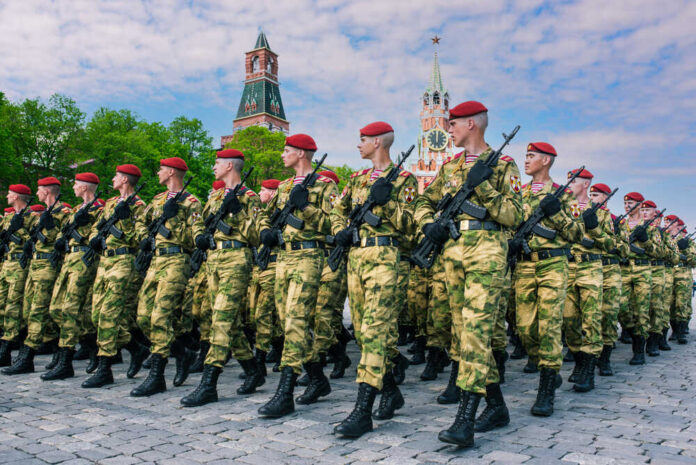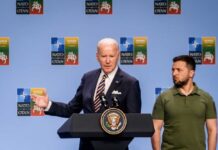In a unanimous vote on Tuesday, the lower house of Russia’s State Doma voted to formally withdraw from the Treaty of Conventional Armed Forces in Europe that Moscow stopped its participation in more than eight years ago, the Associated Press reported.
Tuesday’s vote came just days after Russian President Vladimir Putin introduced draft legislation “denouncing” the Cold War-era treaty that prevented participating countries from building up troops at or near their mutual borders.
The treaty was initially signed in November 1990 but was not fully ratified until 1992.
Russia’s Kremlin-controlled upper chamber, the Federation Council, is scheduled to consider the lower house’s measure next Wednesday, where it is expected the bill will be swiftly approved.
The Kremlin first announced in 2015 that it intended to withdraw from the treaty, and has ignored it ever since. Russia’s invasion of Ukraine is a clear indication that it is no longer concerned about the treaty since hundreds of thousands of Russian troops are now bordering the NATO countries of Hungary, Poland, Romania, and Slovakia.
Deputy Foreign Minister Sergey Ryabkov, Putin’s designated envoy to parliament, told the State Duma on Tuesday that by permitting by expanding into Eastern and Central Europe, NATO has “made it impossible” for Russia to formally remain in the treaty.
In an interview with the Duma’s weekly Parliamentskaya Gazeta on Monday, Ryabkov said the Cold War-era treaty is “contrary” to the security interests of Russia.
The chairman of the parliamentary committee, Andrey Kartapolov said that the treaty was rendered void after NATO began placing military infrastructure within the member states in Eastern and Central Europe.
The Speaker of the State Duma, Leonid Slutsky agreed, saying that the 30-year-old treaty has only existed “on paper” for a long time.
Ryabkov told the lawmakers that the withdrawal process would take around six months to complete.


















